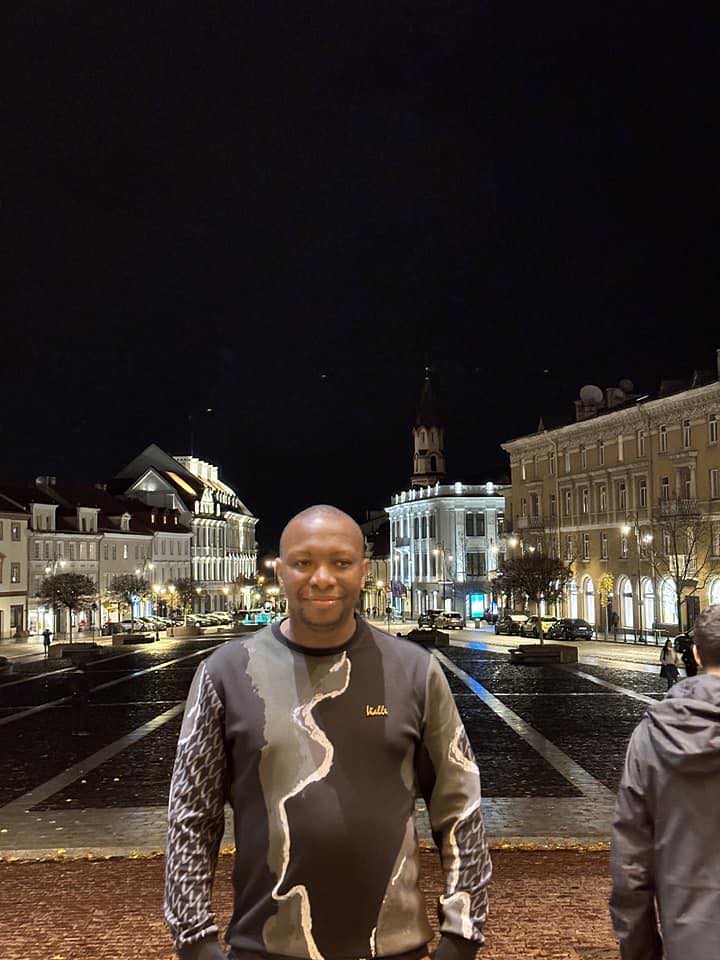By Ncaba Ntshakala
The Government of Eswatini, through spokesperson Alpheous Nxumalo, has welcomed the political evolution within the People’s United Democratic Movement (PUDEMO), particularly the stance taken by its Deputy Secretary-General Maxwell Dlamini regarding participation in the country’s elections.
Nxumalo stated that the ongoing internal debates within PUDEMO regarding electoral participation represent a positive shift in the country’s political landscape.
“The Tinkhundla democratic system of governance remains both a public and a national political competence.
These internal political party implosions are because of a constant messaging of the country to political antagonists that democracy is not and has never been a straight-cut jacket that fits any and everybody around the globe,” said Nxumalo.
He emphasized that Eswatini’s unique governance model has always allowed for inclusive participation.
Dlamini’s call for PUDEMO and the broader Mass Democratic Movement (MDM) to consider participating in national elections signals a departure from the organization’s historic stance of electoral boycotts.
RELATED: Mlungisi Makhanya re-elected PUDEMO President
PUDEMO has long criticized the Tinkhundla system, claiming it is undemocratic, yet evidence has consistently shown that the system is open to all citizens, including those affiliated with political parties.
The debate within PUDEMO has sparked discussions on whether electoral engagement could be a strategic tool for advancing democratic reforms from within, rather than operating entirely outside the existing system.
Nxumalo highlighted that political participation does not equate to endorsing a specific governance model but rather fulfilling a national duty.
“Political participation is never about endorsing a system but fulfilling a national responsibility as a citizen, and secondly, it is about respecting the choices of the constituencies around the country.
Hence, elections under the Tinkhundla democratic system of governance have proven to be politically unbiased but all-inclusive,” he asserted.
He further pointed out that political engagement within the system is not a new phenomenon, as staunch advocates of political party democracy have been elected to Parliament since the country’s independence.
Supporters of Dlamini’s stance within the democratic movement argue that it is time for organizations like PUDEMO to embrace electoral engagement.
A pro-democracy activist who spoke on condition of anonymity stated, “I think it’s long overdue that all organizations consider participating in the elections because no one is hindered from doing so.

The Tinkhundla system of governance is a socialist model that allows everyone to contribute to the formation of government.
” He further noted that continued boycotts have not produced tangible results, and that the country could benefit from the ideas of diverse political groups engaging within the existing system.
Again, Maxwell Dlamini’s position aligns with the views of other prominent activists who have, in the past, advocated for participation in Eswatini’s elections.
In 2008, the late Swaziland Democratic Party (SWADEPA) President Jan Sithole contested and won a parliamentary seat for Manzini North under the Tinkhundla system which demonstrated that opposition figures could actively engage in the country’s governance structures.
More recently, fugitive and former Siphofaneni Member of Parliament Mduduzi Simelane encouraged his supporters within the Swaziland Liberation Movement to participate in elections.
His wife, Nomalungelo Simelane, successfully contested and won the parliamentary seat for Siphofaneni in the 2023 elections.
The Kingdom of Eswatini has been recognized for the credibility and inclusivity of its elections. The most recent general elections in 2023 saw over 650,000 emaSwati participating, a turnout that was commended by His Majesty King Mswati III as an example to the country’s democratic credentials.
RELATED: Enough is enough! PM vows to hunt down terrorists
Both the African Union (AU) and the Southern African Development Community (SADC) endorsed the elections as peaceful and representative of the will of the people.
Section 79 of Eswatini’s Constitution affirms that the country’s governance is based on democracy and participation, with Tinkhundla serving as the mechanism for decentralizing state power and ensuring that public officeholders are elected on the basis of individual merit.
In a recent online discussion, Maxwell Dlamini responded to criticism from PUDEMO Treasurer General Velaphi Mamba, questioning the rationale behind boycotting elections when participation could offer a platform for change.
“What is wrong with an activist or a member of the Mass Democratic Movement (MDM) who believes in constitutional multiparty democracy, human rights, rule of law, and socio-economic justice—and is deeply rooted in the community—being available to be elected as a Member of Parliament, Bucopho, or Indvuna Yekhundla in Sithobelweni?”
Dlamini posed. He argued that political engagement within the system does not equate to betrayal but is, instead, an opportunity to amplify the voices of change.
“If we truly believe in the power of the people, why should they be denied the right to choose their own champions of change anywhere there is a site of struggle?”
Government Spokesperson Nxumalo welcomed Dlamini’s shift in perspective, suggesting that it signifies a maturity in the country’s political discourse.
“Long and short of it – welcome home, Mr. Maxwell Dlamini,” he remarked. Nxumalo implied that Dlamini’s position aligns with the national political trajectory that recognizes participation as the most viable path to effecting change.
Nxumalo asserted that the evolution within PUDEMO could ultimately lead to the organization shedding its image as a political party of perpetual boycotts, instead embracing active engagement as a means of contributing to the country’s development.


